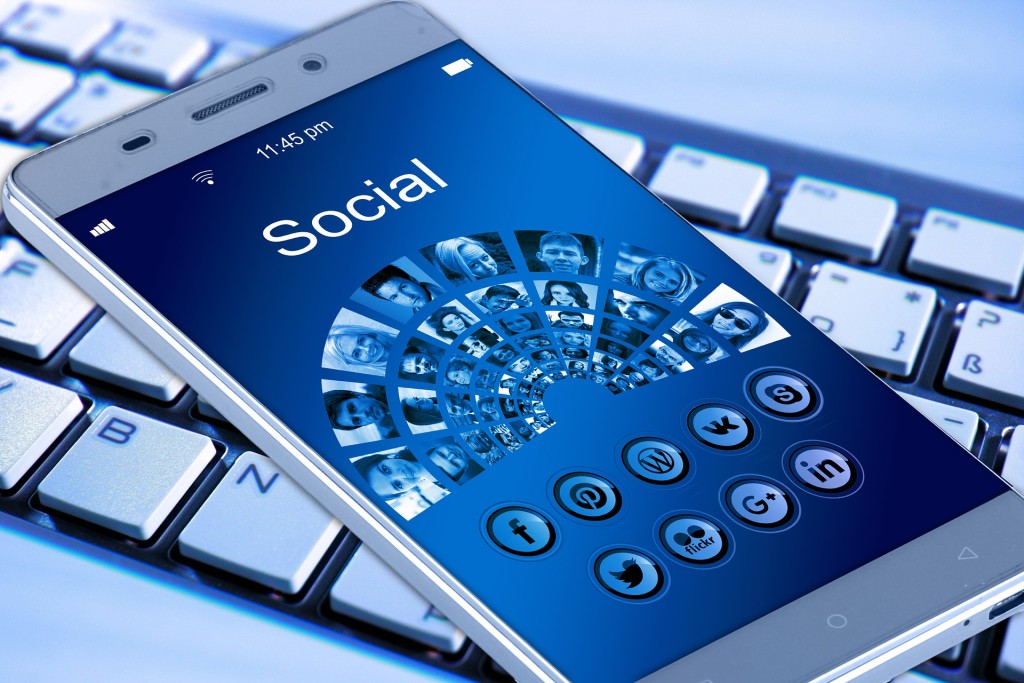In 2019, the number of social media users worldwide stands at about 3.484 billion (Smart Insights). The fact that social media networks have penetrated such a large portion of the world’s population should be a surprise to absolutely no one. And as I’ve previously discussed on this blog, there is both a positive and a negative way to view it. On the one hand, social media offers a wide range of benefits, from increased communication to business development and more. But for many users – especially individuals who may be struggling with depression or other forms of mental illness – there can also be a downside.
In this post, I’d like to take a closer look at how to improve your relationship with social media. After all, it doesn’t appear to be going away anytime soon, if ever, and the idea that you can completely separate yourself from the online social world may not be realistic. With that in mind, let’s focus on how to manage it properly.
- Schedule your social media time. We’ve all been there. You log on to social media for what you think will be a quick minute, and before you know it an hour or more has gone by. Life is short, and your time is precious. At the end of the day, how much time do you really want to devote to social media? By scheduling the time of day and the amount of time you choose to devote to Facebook and Instagram, for instance, you naturally free up a part of your day for other endeavors.
- Think before you post. Sharing photos and other information on social media can be fun, and it’s a great way to connect with others. But it’s easy to get caught up in the moment and inadvertently post something you will later regret. Instead, take a deep breath and spend a few moments reviewing your post – before you share it. Ask yourself if there’s any chance your post could offend someone or if it will cast an unfavorable light on you. When in doubt, a good rule of thumb is not to post.
- Watch out for mood swings. For many people, the problem with social media occurs when they start to compare themselves with others. Since most people are careful to only share the upside of their lives, it’s easy to feel like everyone else is getting along much better than you. The result? Jealousy, anger and a grass-is-always-greener-on-the-other-side mentality take over. If this is something you’ve dealt with in the past, try to identify those moments when you might be vulnerable to this line of thinking. Most of all, remember that what you see on social media is probably not the whole story.
- Buy an alarm clock. If you use the alarm on your cell phone to wake up in the morning, you will be tempted to start your day with social media. Unfortunately, that can set the tone for your day as well. Instead, buy an old-fashioned alarm clock and keep your phone away from the bedroom. Save your social media check-in for later in the day during your designated time.
- Choose another activity to fill your time. You’re in line at the grocery store checkout or sitting in the waiting room at your doctor’s office, and frankly, it’s boring. Rather than flipping through social media, find another activity to fill the void, such as reading a book or magazine – or striking up a conversation with another human being.
- Be selective about who you follow. Certain people are bound to upset you more than others. You know who they are. If someone’s posts leave you feeling angry or upset, it’s okay to un-follow that person. You probably wouldn’t interact with that individual in real life, so why connect with them online? Stop the negative feelings in their tracks and commit to following friends, influencers and organizations that contribute to your happiness and self-esteem.
- Remove the apps from your phone. If you don’t want to quit social media altogether, but you’d like to manage the amount of time you devote to it, it may help to delete the apps from your smartphone. Making social media less accessible means you will probably spend less time with it.
- Avoid arguing online. We live in divisive political times, and certain topics are bound to lead to an argument. It’s easy to fall into the trap of thinking that what you say online doesn’t really matter. But your words have consequences, and they can’t be erased. There’s a good chance you could damage a relationship – either business or personal – and an even better chance that you’ll leave the argument feeling agitated and depressed. It’s okay to engage in a healthy debate, but remember that an overly heated exchange often leads to bad feelings.
- Step away for a while. If social media is impacting your mood or it’s distracting you from other things and interfering with your relationships, it may be time to take a break. Most people don’t realize how much time they spend on social networks – or how it may be robbing them of precious hours doing something they love and can excel at. If your attempts to quit or take a break have been unsuccessful, a mental health professional can help.
David Lowenstein, Ph.D. is a psychologist and the clinical director of Lowenstein & Associates, Inc. in Columbus, Ohio. In addition to providing therapeutic services to individuals and families, he offers training and consultation to numerous associations, schools and agencies around the country. Additionally, he is a frequent radio and TV guest and a resource and contributing writer for numerous newspapers and magazines nationwide. Contact Dr. David Lowenstein at 691 South Fifth Street, Columbus, Ohio, 43206, or call 614.443.6155 or 614.444.0432.


